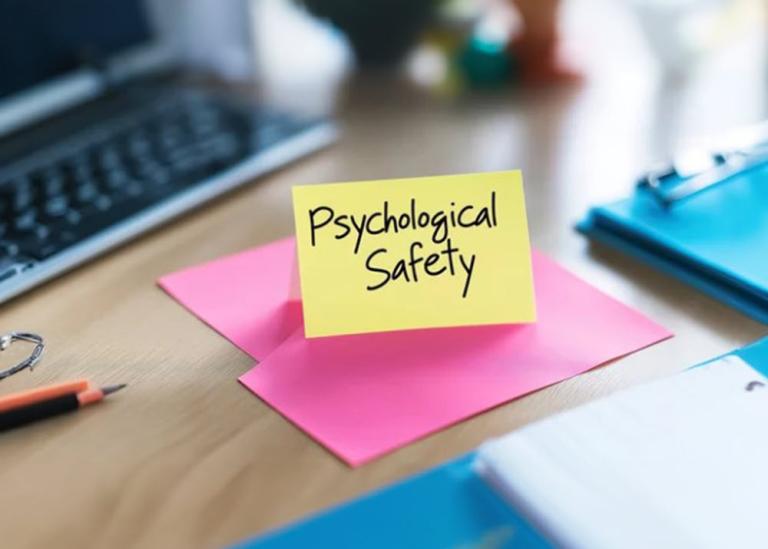By Urvika Koti and Tamara Wakeman from Comcare
“Psychological safety is defined as “the belief that one will not be punished or humiliated for speaking up with ideas, questions, concerns, or mistakes, and the team is safe for interpersonal risk taking.”
Amy Edmondson, Harvard Business School
How comfortable do you feel in taking interpersonal risks at work? Are you able to bring up problems and tough issues? Are you comfortable asking others for help? Do the people you work with avoid blame and judgement when someone makes a mistake? These are some of the questions that can be asked to assess whether people experience psychological safety at work. Answering no can be a sign that you don’t feel comfortable – or don't have the ‘psychological safety’ – to be your authentic self at work.
The APS Reform agenda is committed to fostering an APS that embodies integrity in everything that it does and has the capability to do its job well. When people feel psychologically safe at work, they are more likely to communicate openly and honestly, make informed decisions and trust and respect each other. Building psychological safety in the APS contributes to a culture of integrity and more effective governance, service delivery and trust in Government.
Comcare and the APSC are delivering three projects to support building safety and integrity capability across the APS with funding from the APS Capability Reinvestment Fund 2024-25. The program aims to build and strengthen integrity, psychological and psychosocial safety within the APS. It does this through capability uplift in leaders and teams that drive positive behaviour change, including through good work design. Leaders at all levels play a critical role in establishing psychological safety by modelling positive behaviours and considering the design of work. Improving the quality of work and work environments can support psychosocial and psychological safety in both physical and virtual workspaces.
Project 1 – SES Skills Lab and Mentoring Program
Led by the APS Mental Health and Suicide Prevention Unit (the Unit), this project is piloting a skills lab and mentoring sessions for SES staff members. The program focuses on building leadership capability through the Unit’s 6R Relational Leader Capabilities framework. The skills lab and mentoring sessions use a reflective practice approach and leverage peer-based learning, creating networks of senior leaders who can support each other to sustainably implement relational leadership and better enable psychological safety across the APS.
Project 2 – EL2 Leadership Edge Program Good Work Design sprint
Comcare has partnered with the APS Academy and Curtin University to develop and pilot a Good Work Design sprint within the APS Leadership Edge program, in November 2024. Leadership Edge is a cohort-based social learning program focused on developing desired leadership and management capabilities in EL2s and EL1s. The sprint had a focus on building leadership capability to design healthy and psychologically safe work environments using work design and Curtin University’s SMART work design model.
Project 3 – SMART work design for teams
Project 3 will extend the learning for participants in the Leadership Edge program, to enhance their ability to apply work design processes within teams. The pilot program will work with EL2s and EL1s to build capability while co-designing a SMART Teams Toolkit to help teams across the APS apply SMART work design.





